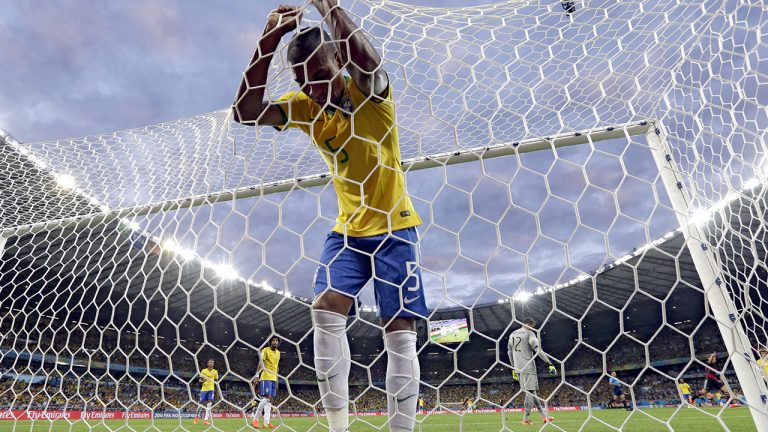The ‘Scary’ Smart
Talent hits a target no one else can hit; genius hits a target no one else can see. — Arthur Schopenhour
 Earlier yesterday, I was speaking with a friend who told me about his friend who was so smart that he went to high school for two weeks, then dropped out because he got bored, and was then accepted at the University of Chicago.
Earlier yesterday, I was speaking with a friend who told me about his friend who was so smart that he went to high school for two weeks, then dropped out because he got bored, and was then accepted at the University of Chicago.
Naturally, I had to later Google someone even smarter than this kid to make me feel better about my own intelligence (we academics have fragile egos), and that’s when I found…
Tanishq Abraham joined Mensa (a society only open to the top 2% of the most intelligent adults) at the age of four. At the age of five, he graduated from Stanford’s Education Program for Gifted Youth (meant to be completed in 5 years) in 6 months. At age seven, he enrolled in college, maintaining a 4.0 GPA, and by age nine, he became the youngest person ever to speak at one of NASA’s conferences.
At similar ages, I was trying to collect all the Jurassic Park III toys in my McDonald’s Happy Meals.
But do these child prodigies fulfill their projected greatness? Or is all that brain too much to bear?
Today’s post isn’t about the kids who are ‘super smart.’ We’re talking about the ‘scary smart.’
THE FATE OF NATIONS
Extensive research has demonstrated that “extraordinary economies are created by extraordinary minds.” That is, the success of nations depends largely on the human capital that resides within it.
Traditionally, a nation’s wealth or affluence has been attributed to more structural accounts, such as the geographic or historical-political factors that make up the country. However, a large-scale study of around 90 countries revealed another very important component: the country’s “intellectual class.”
To quote the researchers: “This group’s cognitive ability predicts the quality of economic and political institutions, which further determines the economic affluence of the nation.”
Indeed, you can imagine how the discovery of new science and technologies can create new consumer goods, government products, or solutions to existing problems, producing more jobs and societal stability, which would greatly influence the wealth and prosperity of a nation.
So as such, you can imagine that governments would be interested in discovering who these future cognitive leaders will be–and identifying them while they’re young.
THE HUNT FOR THE SUPER GIFTED
In finding the truly gifted, the smartest of the smart isn’t good enough; you need the smartest of the smartest.
The participants in this study I’ll be talking about included kids (under the age of 13) who scored in the top .0001% on either the SAT-Math or the SAT-Verbal (the college entrance exams for graduating high school students). With these criteria, the researchers found 320 US children, and then followed them over the next 30 years.

For example, close to 25% of the sample published and produced creative works (e.g., poetry, novels, music, sculpture, etc.). About 15% submitted patents, whereas the national average is less than 1%. And of those patents, nearly 40% were filed for Fortune 500 companies. To sum up their achievements overall, these kids, on average, would later win 9 significant awards a piece for their contributions to their specific field.
But it wasn’t just this study that demonstrated it; another study back in the 1869 and again in 2016 revealed the same success for the super gifted. Be that in academic achievement, the business world, or the creative arts, the top of the top end up, well, on top.
And so, although most of us are not as smart as those people (yes, we’re back to talking about me and my fragile ego), there is still some hope for us: having babies with those people.
Giftedly-Envious,
jdt
Everyday Psychology: If you didn’t take my final line as humor and ended up becoming a parent to one of these ‘precocious youths,’ then here’s some advice from researchers on how to raise a child prodigy:
- Expose the child to a diverse range of experiences
- Provide opportunities to let a child develop his/her strong interests or talents
- Support the child’s emotional needs (along with his/her intellectual ones)
- Encourage children by praising their effort, not their ability
- Let the children take intellectual risks; failure can be good
- Don’t label them as ‘gifted’ (or things similar); this can provoke negative expectations, emotions, or self-perspectives
Clynes, T. (2016). How to raise a genius: Lessons from 45-year study of super-smart children. Nature. http://www.nature.com/news/how-to-raise-a-genius-lessons-from-a-45-year-study-of-super-smart-children-1.20537#box
Kell, H. J., Lubinski, D., & Benbow, C. P. (2013). Who rises to the top? Early indicators. Psychological Science, 24(5), 648-659.
Makel, M. C., Kell, H. J., Lubinski, D., Putallaz, M., & Benbow, C. P. (2016). When lightning strikes twice: Profoundly gifted, profoundly accomplished. Psychological Science, 27(7), 1004-1018.
Rindermann, H., & Thompson, J. (2011). Cognitive capitalism: The effect of cognitive ability on wealth, as mediated through scientific achievement and economic freedom. Psychological Science, 22(6), 754-763.








